
For nearly two decades, we have been used to a world dominated by traditional search engines.
However, as large language model (LLM) technology has evolved, we are now witnessing the rise of the answer engine.
Generative AI tools like ChatGPT, Perplexity, Claude and Google’s Gemini (and AI Overviews) are redefining how we approach organic search.
These technologies focus on delivering instant, conversational answers, leading to a decline in traditional SERP real estate and the growth of zero-click searches.
In a recent study, Gartner projected that traditional search volume could drop by 25% by 2026, with a 50% decline in organic search traffic as more consumers turn to AI-powered tools.
The implications of this shift are profound, especially for businesses that rely on organic search traffic.
The question is: How do we adapt to remain visible if we see a continued rise in the use of answer engines?
Another step toward zero-click search
The disruption we’ve witnessed due to generative search technology is yet another factor driving a rise in zero-click searches.
For years, we’ve seen declining SERP real estate on Google due to increased SERP features.
Brands that have consistently ranked atop Google’s search results will have witnessed a slight decline in traffic over time.
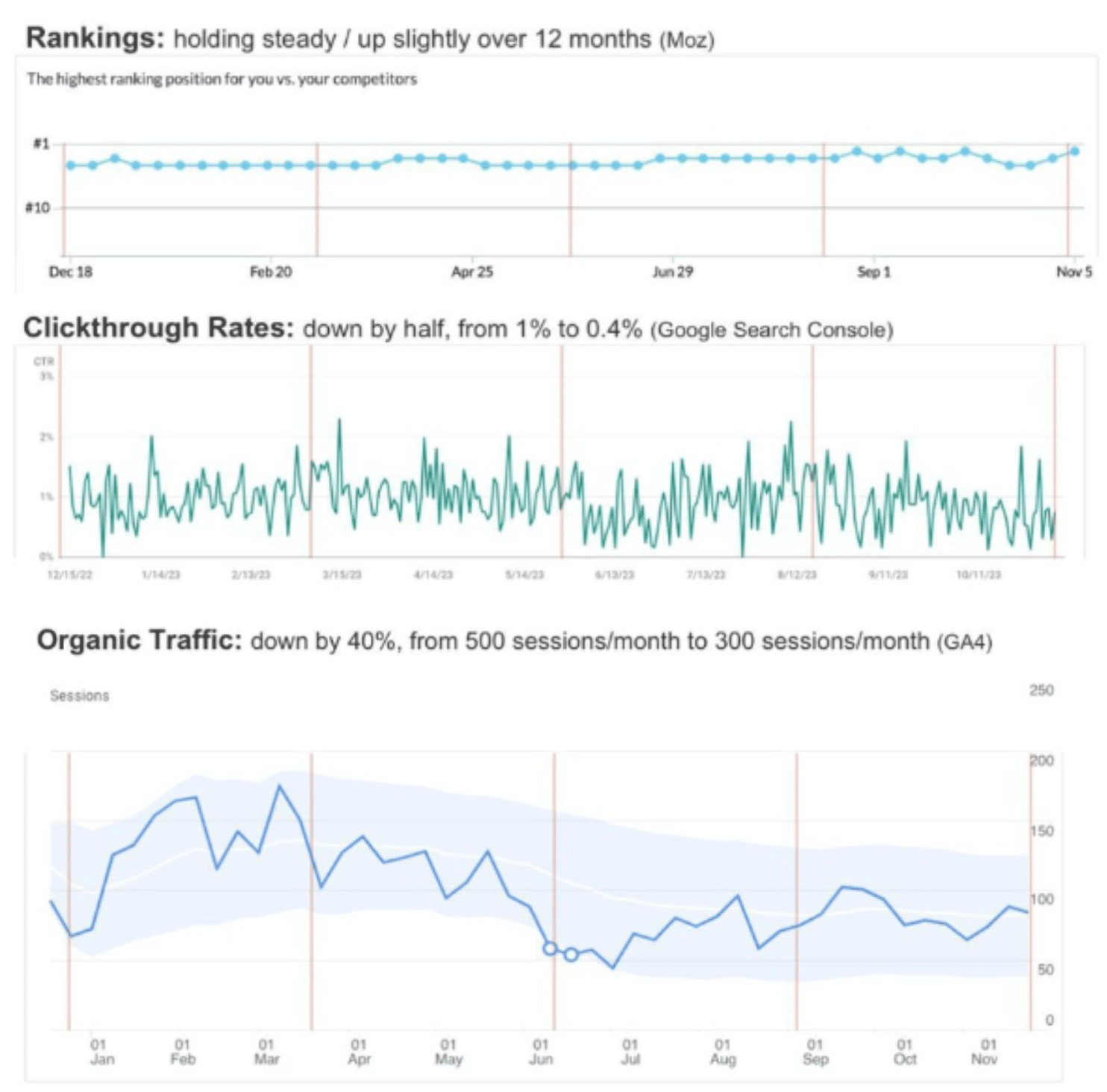
Over the years, Google’s SERPs have transformed significantly, prioritizing featured snippets, knowledge panels and now generative AI summaries, leaving little room for traditional organic listings.
Today, 60% of Google searches don’t result in a click, a trend that will likely increase with AI features.
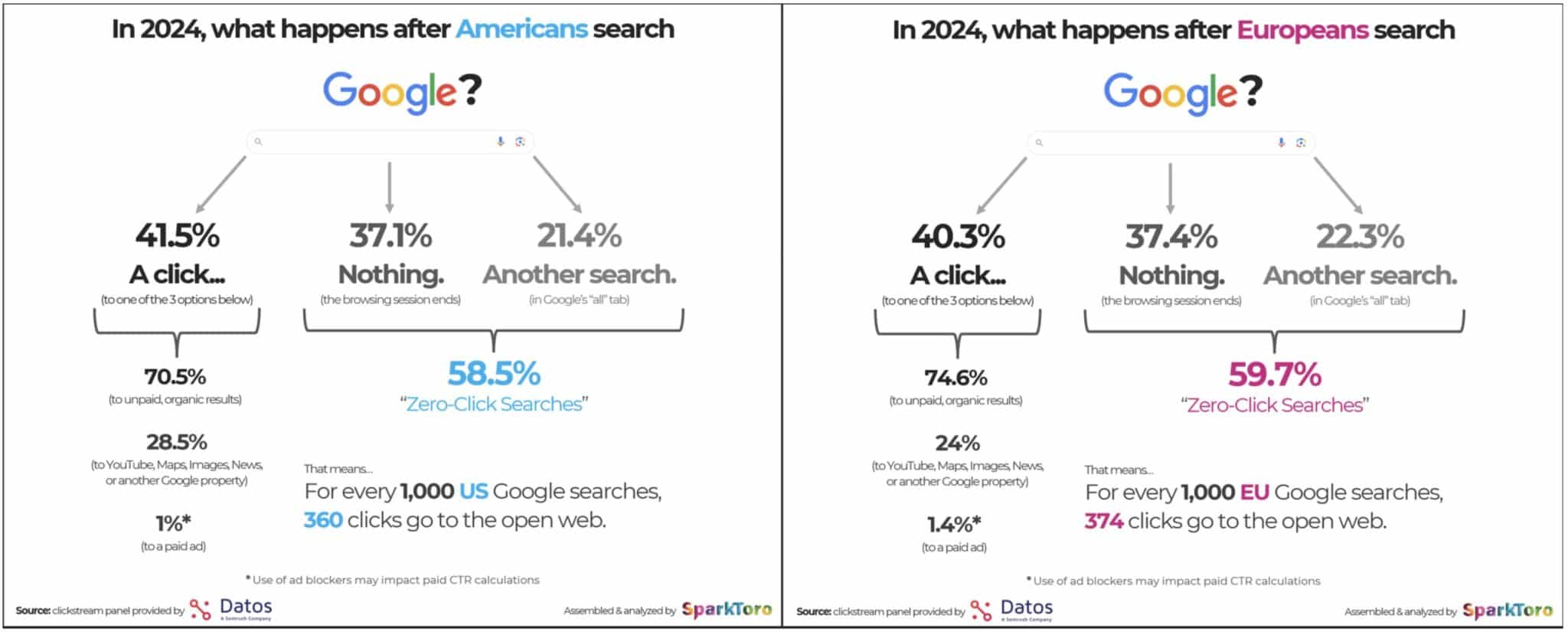
As AI platforms continue to deliver answers without directing users to external websites, brands that rely on SEO must diversify their approach to traffic acquisition.
Traditional search is shrinking. Brands are no longer just competing for rankings on Google; they are competing for visibility on AI-driven platforms where the rules are fundamentally different.
The rise of generative engine optimization (GEO)
Generative engine optimization is an evolving practice of optimizing an entity to be featured in the responses generated by AI applications, features and models like ChatGPT, Gemini, Google’s AI Overviews, Claude and Perplexity.
ChatGPT is already averaging around 3 billion sessions per month. While that’s still some way off Google’s 80 billion global sessions per month, it’s certainly worth your attention.
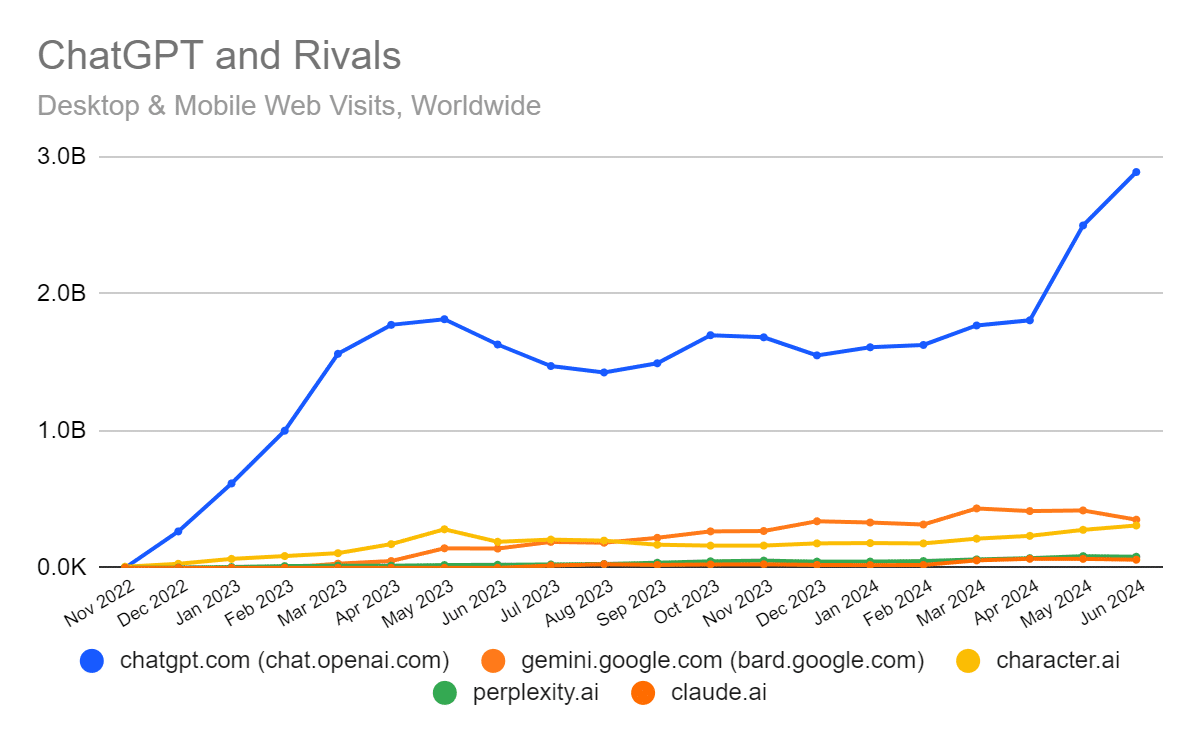
Isn’t GEO just SEO?
If you’ve spent time comparing the results generated by platforms such as Perplexity and ChatGPT, you’ll notice that they differ vastly from the results from Google Search.
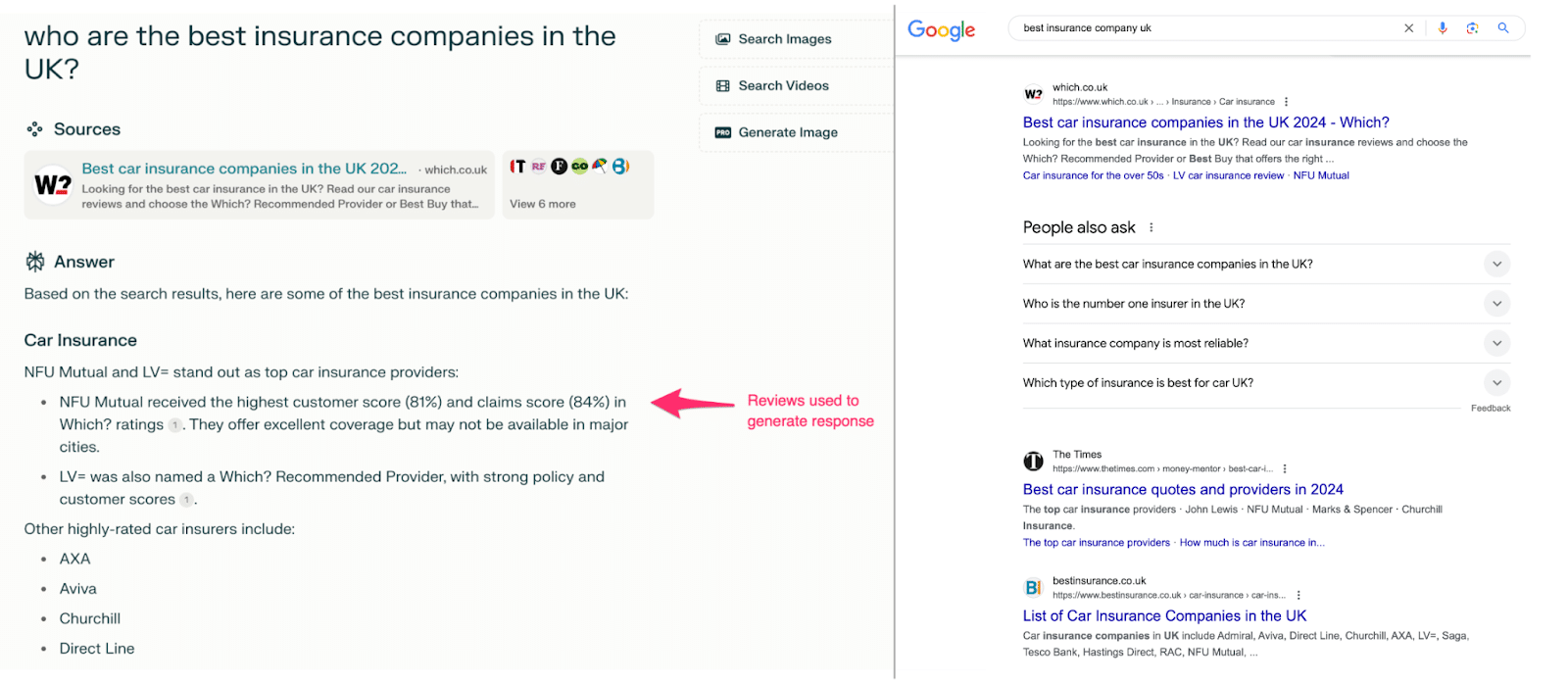
Many of our agency clients have asked whether the rise of AI-driven platforms requires a new approach or if traditional SEO techniques still apply.
While many elements of GEO are important for SEO, some key nuances to be aware of will impact your brand’s performance more on generative engines than standard search engines.
Based on the limited published research and our own testing to date, we know that the following signals are important for increasing visibility in answer engines such as ChatGPT and Perplexity:
- Structured data: Focus on key entities (people, places, concepts). Use precise terminology and provide context to help AI understand their relevance. Link to authoritative sources and markup entities to enhance AI recognition.
- Citations: ChatGPT prioritizes high-authority publications, meaning “being cited” is even more important here. To improve performance, target high-authority sources used by ChatGPT to enhance brand inclusion in its responses.
- Natural language: Content strategies must evolve to answer complex, multifaceted questions – rather than simply targeting specific keywords.
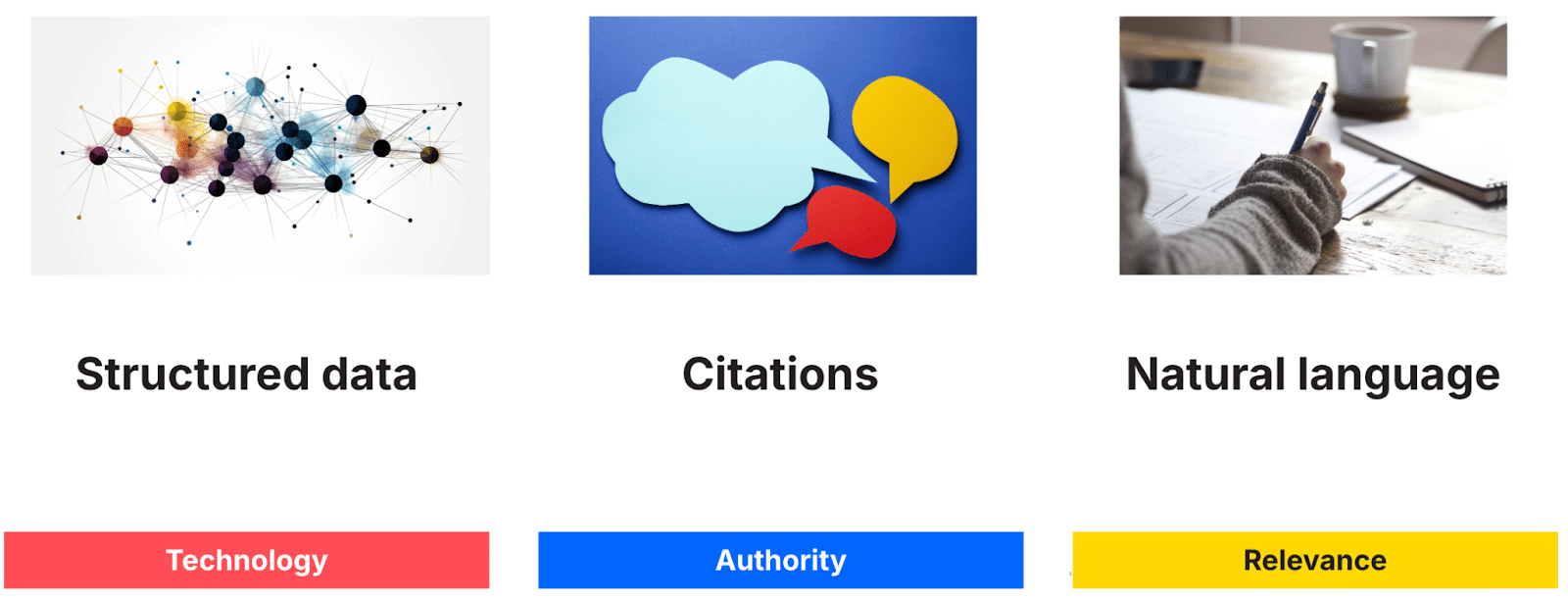
Now, let’s break down each pillar with a bit more detail.
1. Structured data: Optimizing for entity recognition
AI tools generate answers based on patterns and context. As such, your content must be easy for these engines to understand.
Structured data plays a crucial role in this. By marking up your content with schema, you help AI platforms recognize entities – such as people, places, products and organizations – and connect them with relevant queries.
Entity optimization is particularly important for LLMs, which rely heavily on structured information to determine how to categorize and present your brand.
Building ontologies helps AI models deliver precise information by mapping relationships between entities and content.
Think of ontology as a structured map of meaning. Creating content connected to key entities within your site helps search engines and LLMs index your website accurately.
By integrating ontologies into your website’s architecture – via schema, linking and navigation hierarchy – you ensure a user-friendly experience and enable AI-driven search results to surface accurate brand information.
2. Citations: The importance of being the cited source
Arguably the most important factor in GEO is ensuring that your brand is cited by authoritative sources.
Unlike traditional search engines, AI-driven tools don’t crawl the web in real time. They rely on retrieval-augmented generation (RAG) to synthesize answers based on trusted, previously gathered information.
If your brand isn’t being cited in reliable sources, it’s unlikely to be referenced in AI-generated responses.
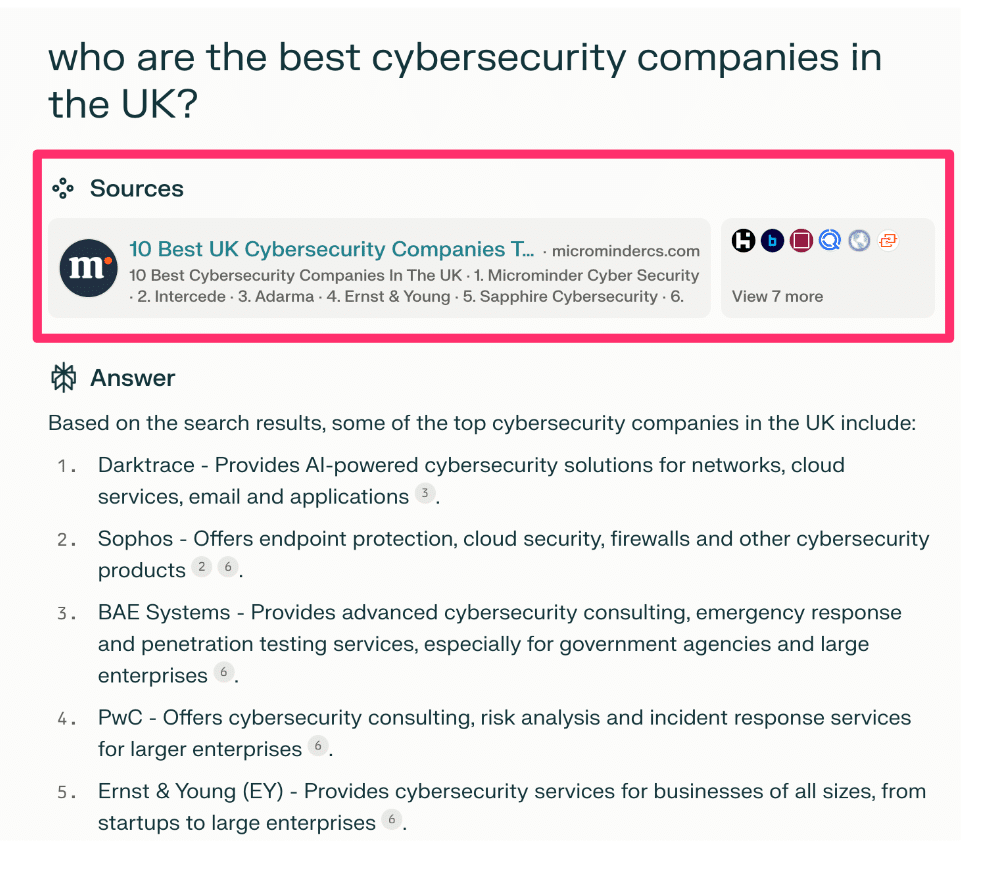
This brings us to digital PR and the importance of being mentioned by high-authority publications.
Targeting these publications and securing citations will significantly boost your visibility on generative AI platforms.
The strategy is simple: to get included in AI outputs, your brand must be trusted and referenced by the sources that feed these models.
3. Natural language: Shifting to conversational content
Traditional SEO often focuses on keywords, but in an AI-driven world, natural language is king.
Answer engines are designed to respond to complex, conversational queries, meaning that your content must adapt to answer nuanced, multifaceted questions rather than simply targeting individual keywords.
This shift toward a conversational tone is essential to succeed in ChatGPT and Perplexity.
Brands must focus on creating content that feels human, answers real user concerns and is structured in a way that AI can easily comprehend.
It’s no longer just about SEO-friendly content; it’s about creating content that AI platforms can trust to deliver accurate, valuable information.
This trend will also clearly benefit your strategy on Google search, who prioritize content generated by human subject matter experts (think E-E-A-T).
The opportunity cost of ignoring AI-driven search
Building visibility in generative engines isn’t necessarily about gaining website traffic. It’s about ensuring your brand shows up for relevant questions.
Having your brand cited is arguably more important than regurgitating your content based on how people use these platforms today.
As the adoption of these platforms increases, I expect the concept of GEO to become a core part of brands’ organic strategies.
Missing out on being referenced in ChatGPT could become the new equivalent of not ranking on Google.
The future of measurement: Share of model
As generative AI reshapes organic search, we must also rethink our metrics. Conversational searches, such as those on ChatGPT, capture nuances and interests that keyword analysis simply can’t match.
The classic data we have relied on will likely decline in relevance and effectiveness over time. However, a new metric, share of model, has started to gain traction.
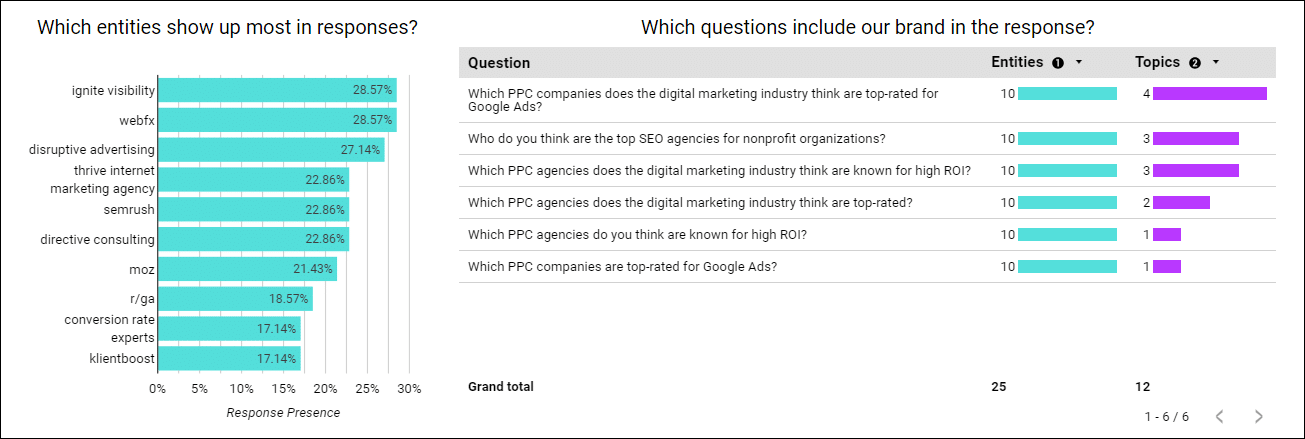
Share of model refers to how often your brand is cited in AI-generated responses across answer engines.
Analyzing how often your brand is referenced and which sources feed these responses will become key indicators of success in this new landscape.
Where to get started
If you’d like to build a better understanding of how your brand is performing on platforms such as ChatGPT, you can start by focusing on three areas:
- Brand perception research: Evaluate how AI platforms perceive your brand, using this understanding to influence your brand’s visibility on referenced sources.
- Content research: Analyze preferred content types and formats prioritized by AI-driven search engines. Focus on structures and formats that resonate with AI algorithms for terms your customers would likely use to source information.
- Cited sources: Target high-visibility content sources used by ChatGPT and Perplexity for relevant search terms to enhance brand inclusion in its responses.

Diversify or get left behind
Now is the time to think beyond traditional SEO principles. As answer engines continue to rise, optimizing for AI outputs will grow in importance.
By evolving your approach now, you can secure your brand’s place in the AI-driven search landscape – and ensure that you remain visible in a world where traditional SEO tactics are no longer enough to drive organic growth.
source https://searchengineland.com/evolve-organic-approach-answer-engines-447352


0 Comments